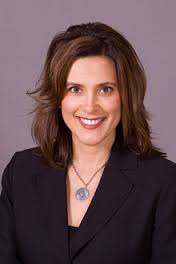Democrats smashed all expectations on Tuesday, racking up key election wins across the country. To make victory even sweeter, this was almost a year to the date from when Donald Trump shocked progressives by conquering the presidency.
Indeed, the news was so bad for Republicans that Fox News barely covered the results and the only election Trump referenced on Twitter was the one in 2016.
The year after a presidential election, the marquee races are for New York City mayor, New Jersey governor and Virginia governor. On Tuesday, Democrats won the trifecta — and no election was even close, even as pundits declared they’d “blown it” in Virginia.
These elections have long been considered a barometer for what to expect in the midterms. As of now, everything seems to be coming up roses for the Dems.
In 2009, a year after Barack Obama’s first victory, Republicans took both gubernatorial races. Mike Bloomberg switched that year from being a Republican to an independent and won a third term as New York mayor.
And in Michigan, Republicans triumphed in a special state Senate race that year. As I’ve noted, the victory of now-Sen. Mike Nofs (R-Battle Creek) was a harbinger of the GOP tsunami in 2010, when the party won the governorship, a 9-5 advantage in Congress, a 63-47 majority in the House and a 26-12 supermajority in the Senate.
The result of the special state House race Tuesday in the 109th district to replace the late Rep. John Kivela (D-Marquette) might not seem as dramatic. Democrats held an Upper Peninsula seat with a solid 56.9 percent Democratic base, per Inside Michigan Politics — one that’s been in their hands for more than a half-century. But it’s also a district that Trump won last year and the U.P. has been trending red since 2010.
Democrats were nervous, especially after Trump’s upset in Michigan a year ago. But despite Republicans’ best efforts — running Rich Rossway, a well-funded moderate who courted unions — Democrat Sara Cambensy won by 14 points.
The Dems’ enthusiasm is a great sign for 2018. That’s what they need if they want to flip the state House, which is split 63-47 in the GOP’s favor, and/or capture the big prize of the governor’s mansion. Either way, the Dems would regain a foothold in shaping the state’s agenda — and in the all-important 2021 redistricting process.
It’s significant that Cambensy won in spite deep divisions in the party. Republicans tried to exploit them, arguing the pro-choice Cambensy was too liberal for the district and pointing out that she’d primaried the popular Kivela last year. Nothing stuck.
The GOP attacks against Democrat Ralph Northam in the Virginia gubernatorial race also fell flat. Pundits speculated that menacing ads (which warned the Dem would let international MS-13 killers run wild in the state) would be the death knell for Northam. But he won the race handily.
Since Trump’s surprise victory last year, the media have been obsessed with white working-class voters who flipped to him. Democrats have been mired in debates about how to win those voters back, which has, at times, slighted women and people of color.
I’ve noted that a sect of Michigan Democrats has been focused on finding a white male gubernatorial candidate for months. They fervently believe that the only way for Dems to win back the governor’s mansion is with a “safe” nominee after Trump flipped Michigan last year.
The current field includes frontrunner former Senate Minority Leader Gretchen Whitmer (D-East Lansing) and Dr. Abdul El-Sayed, the former Detroit Health Department head who would be the nation’s first Muslim governor. There’s also businessman Shri Thanedar, who immigrated from India, and former executive Bill Cobbs, who’s African-American.
But Tuesday’s results don’t support the premise that Dems must adopt a defensive crouch and find the “Great White Male Hope,” starting with Cambensy’s victory in the U.P. She certainly wasn’t the safe choice for Democrats to nominate and yet she shattered expectations.
In Virginia, a trans journalist defeated the homophobic author of the “bathroom bill” in a state House race. The chamber also got its first Asian female and Latina members. And the boyfriend of a reporter killed on live TV defeated an NRA-backed candidate on a gun-control platform.
Charlotte, N.C., elected its first black female mayor and six other cities elected their first black mayors. Both of the new lieutenant governors in New Jersey and Virginia are African-American. An African-American woman beat a local New Jersey official who had posted a meme wondering if the Women’s March activists would be “over in time for them to cook dinner.”
And after enduring a campaign marked by “Don’t let TERRORISM take over our town!” fliers, Hoboken, N.J., elected its first Sikh mayor.
If you’re looking for a common thread, it would be that so many of these rising political stars are passionate about America as they see it — a beautiful, messy, diverse republic where anyone should be able to make it. Sure, it’s a rebuke of Trump, who’s fond of describing our nation as a dystopian hellscape. But it’s also a pretty appealing and uplifting message.
And even if you don’t buy the message, you can’t deny the candidates’ passion. That’s a quality that can’t be manufactured and wins races — which is exactly what Democrats need in 2018.
Susan J. Demas is Publisher and Editor of Inside Michigan Politics, a nationally acclaimed, biweekly political newsletter. Her political columns can be found at SusanJDemas.com. Follow her on Twitter here.





